Jessica Lesesky is an e-commerce and marketplaces expert with experience building and scaling brands via third party partnerships. With over 15 years in the e-commerce industry, Lesesky has held several senior leadership positions focused on revenue generation, ecommerce strategy, marketing and product development at eBay, Barnes & Noble, RetailMeNot and Charles & Colvard.
As President of ehemp, she oversees a content and commerce destination that showcases a curated assortment of hemp-based goods across an array of categories – wellness, beauty, apparel, accessories, houseware, pets, and many more – from the industry’s most innovative, authentic, and reputable brands. With a focus on education and storytelling, ehemp offers a community to filter past the noise and discover, learn, and shop for all things hemp as well as a platform to connect with brands that align with values of sustainability to quality of life to supporting small businesses.
Thank you so much for doing this with us! Can you tell us the “backstory” about what brought you to the cannabis industry?
I’m thrilled to do this with you! I grew up in a very small town – only 400 hundred people – of Salemburg, North Carolina. My dad and grandfather had a farm and I spent many summers in the tobacco fields. Even though I was older, I walked behind the harvester to pick up the scraps while my younger brother got to drive the tractor (I’m not bitter though…ok, maybe a little). Anyway, I would spend those days thinking about the “when I grow up” scenarios; promising myself that I would venture far away from agriculture.
And my career path did lead me far away. I spent a few years in PR, then ecommerce working for companies like ChannelAdvisor (an ecommerce services provider), Barnes & Noble, eBay, RetailMeNot and Charles and Colvard. Early in my professional years, I met Kevin Sullivan and learned about his company, Leading Points, that establishes corporate military programs for companies centered around veteran employment, perks programs and charitable giving. We worked together on a few programs at various retailers and always stayed in touch. He became a co-founder of International Hemp Solutions in 2014 and last December shared IHS was planning to launch a retailer focused on everything hemp. As he described the opportunity, I was really intrigued and the wheels started turning on how this company could really make a difference in helping people cut through all the chaos in the CBD category, shop from trusted brands and create something that aligned with their values of sustainability. So when he asked me to join as President, I, of course, said yes and the rest is history.
So now I get to blend the best of both worlds, agriculture, and retail because everything we do starts with the plant. I am so grateful for those days on the farm. It taught me the value of hard work, an understanding of the challenges facing the agriculture industry and a passion that fuels what I do every day. Our business starts with the farmers and industrial hemp can have such a positive impact on the agriculture industry and I feel honored to have purpose in what I do every day.
One note on language. Cannabis is the name of the plant family that both marijuana and industrial hemp are a part of. Thus, when we say the cannabis industry, we’re referring to its two sides – the marijuana industry, and the hemp industry.
Can you share the most interesting story that happened to you since you began leading ehemp? Can you tell us what lesson you learned from that?
For me, it’s all the stories I get to hear and be a part of every day. All of our partners are passionate innovators who have a unique story – the story of their life and the path they took toward hemp and developing something that nobody has created. And then there’s all the stories we hear from shoppers. The difference hemp has made for them. It cannot be overstated because it is unique to this plant and this industry, and we are so honored and lucky to be a part of it.
Can you share a story about the funniest mistake you made when you were first starting? Can you tell us what lesson you learned from that?
Yes, when I was at ChannelAdvisor, ecommerce was a newish industry and still maturing. Macys.com was a small office above the Westfield Mall in San Francisco. I had been working on getting in front of the ecomm leadership team for several months and finally got a commitment to a discovery meeting. I sent the calendar invite, flew out for the meeting and showed up 15 minutes beforehand to prep. I’m sitting in the lobby and my point of contact comes to meet me with a confused and annoyed look saying “I thought this was a web meeting”. My response was “I thought this was an onsite meeting and I’m here and excited to meet everyone”.
We got through the meeting but from then on, I definitely was very clear on the location and type of meeting moving forward.
Do you have a funny story about how someone you knew reacted when they first heard you were getting into the cannabis industry?
Yes and it involves my mom. She’s always championed my career. When I told her about ehemp she sat silent on the phone for a while and then asked me if I was going to be safe. She thought that hemp and marijuana were the same and I’d be somehow in the throws of drug dealers. After explaining the differences, she felt better and was excited for me. But it highlights the challenges industrial hemp has with getting mistaken for its cousin and there are stigmas to overcome.
None of us are able to achieve success without some help along the way. Is there a particular person who you are grateful towards who helped get you to where you are? Can you share a story?
There is some merit to the saying it takes a village. And so first and foremost I have to recognize the teams I’ve worked with at various organizations. Not one person is successful on their own. They surround themselves with smart, creative people that make them better and I’ve been so fortunate to work with the best in the business throughout my career and ehemp is no exception. We have an impressive team.
There are two specific individuals though that stand out personally and professionally for me. My husband, Brian and I have been together for 19 years and married for 13. I would not be where I am without his unwavering support and everything he does to keep us humming along. He knew early on how important my work is, my drive and I tend to gravitate towards roles that involve building things from the ground up. So it requires a lot of hustle to make things happen and sometimes heavy travel. He steps in when I can’t with family obligations, volunteers at the school for the kids, shuttles them to practices all while being my biggest fan and offering very sound perspective and advice. I would not be where I am without him.
Professionally, my mentor Michael Jones has been a huge advocate. We’ve worked together at several companies and he’s constantly given me a shot to take on new opportunities, encouraged me to tackle uncharted territory and helped me develop. He fought for me in situations where there was pay inequity and I’ve not once heard from him, “you’ve never done this before, ” instead, he’ll say, “I trust you, go make it happen”.
Are you working on any new or exciting projects now? How do you think that will help people?
ehemp launched mid-Oct and we’re very focused on our mission to help 1m people replace an everyday product with a sustainable, hemp-based alternative by 2021.
Ultimately people want to do good and we know that 88% of consumers are expecting brands to help them with those choices. And that’s what we wake up and think about — how are we going to connect products and brands that align with your values and make a difference.
Many people are still unaware of the 25,000 uses for hemp and its sustainable benefits. For example, something as small as swapping a basic tee for a hemp tee. If 1m people did that, we could save 2.3b liters of water.
So our focus is to incentivize those activities. Early next year, we’ll be launching a program where you can donate gently used tee-shirts to us and get credit towards the purchase of a hemp tee. To close the loop, ehemp will either upcycle or donate that item to charities.
We believe small changes make a big impact and ehemp will more effectively celebrate these greener choices with hemp products. We’re building out a rewards program that leans in heavily on items that reduce single-use plastics and contribute the largest waste. So imagine a scenario where I buy a hemp bioplastic toothbrush and I have a choice to use my rewards towards future purchases or donate to charities that support the environment.
If a third of the products we used were made from hemp, we could pull more than 3 billion tons of C02 out of the atmosphere! We see our role to help people connect these dots and drive demand for hemp-based alternatives. It’s good for everyone – the environment, agriculture, local economies and job creation.
Ok. Thank you for all that. Let’s now jump to the main core of our interview. Despite great progress that has been made we still have a lot more work to do to achieve gender parity in this industry. According to this report in Entrepreneur, less than 25 percent of cannabis businesses are run by women. In your opinion or experience, what 3 things can be done by a)individuals b)companies and/or c) society to support greater gender parity moving forward?
Only 3 things? Wow – I’m so passionate about this so it will be tough to narrow down….I’ll try my best. I’m going to focus on individuals because my philosophy is you have to be the change you want to see; not cross your fingers and hope someone else figures it out.
As individuals, we have so many opportunities to influence greater gender parity and it starts at home. As parents, we can bust the stereotypical myths as we raise our children. For example, my kids see their dad at home cooking, cleaning, carpooling, etc. My 4 year old wanted to paint his toenails ninja turtle green and we said why not? These kind of things start with how we teach and instill at an early age that you can be what you want to be and actually mean it as well as avoid using the stereotypes of what it means to be boy versus girl. Ultimately let’s just raise good people.
As we move up in our professional careers, it’s important to mentor and support women. Early on in my career, there weren’t that many roles for women leaders and so it felt competitive. One of the top books in the early 2000s for women was “Nice girls don’t get the corner office”. It’s telling of that time because the premise was in the office, you can’t act like a woman and you need to have a hard exterior to make it in the corporate world.
Personally, it didn’t deter me from reaching out to women colleagues but because of the lack of women in leadership positions and the competitiveness I had stronger mentor connections with male colleagues than women and there is value in both. So to male peers, if you see a bad-ass woman trying to move up in the ranks, help her out. If you’re a successful woman, you have to pay it forward and enable other women to rise up. I assure you it will be rewarding and motivating.
For executives in organizations, you must recognize that stereotypes still exist and look for intentional or unintentional scenarios. Be open to an honest dialogue about when these things happen. Don’t go into ostrich-mode and hope it goes away. It won’t. Do something about it and lead the change. Whether it’s pay inequity, inclusiveness on a high-profile project, coaching another leader in the organization to change views, you set the tone for the values of the organization. It’s not just an HR function so you have to step up, lead by example around gender parity and tackle issues when they arise head-on.
If you haven’t seen the Female Quotient, they have substantial data on what Return on Equality means for organizations. For example, companies with more women in leadership see 1.4x sustained profitable growth and women working at their full potential could add $28 trillion to global GDP by 2025.
You are a “Cannabis Insider”. If you had to advise someone about 5 non intuitive things one should know to succeed in the cannabis industry, what would you say? Can you please give a story or an example for each.
- The playbook you’re accustomed to isn’t there for someone coming from other industries, you have to think outside of the box. We’ve seen relative to where the digital advertising comfort level is for the hemp industry. For example, our ads for apparel will get rejected on Facebook because our brand name has “hemp” in it. Where for other apparel brands, they don’t have to worry about this and paid social is an important traffic driver for them.
- You can’t take for granted the lack of education and all the opportunity that exists around that. You need to educate every day in conversations, whether it’s a bank or a marketing agency, while it can get old having to go through the same points, again and again, it’s rewarding to spread the much-needed education. For example, we were exploring podcast advertising and when our marketing director initially reached out, we immediately heard no – they don’t work with CBD brands. When we took the time to explain our mission, educate about our vetting process and how we put the customer first PLUS our focus on the sustainability aspects of hemp, they came around and were open to working together.
- There is a lot of excitement around CBD, but I would encourage entrepreneurs who want to get into the industry to look at the other innovations and opportunities that hemp offers. Especially with respect to sustainability and all the things we haven’t made from hemp that we can!
- You wouldn’t put someone at a beauty counter who wasn’t incredibly knowledgeable about skincare and cosmetics. Make sure that the people who are representing your brand have the knowledge they need to accurately and appropriately represent your company, your product, and the industry. I cringe when I overhear someone in a store give misinformation about CBD or hemp and I’m that annoying person that steps in to make sure the information is right. So to retailers who are entering this category, please make sure you have an emphasis on training and education.
- The industry thrives on partnerships. This is a new space and there is enough market share for everybody. It’s better to come in with a philosophy of collaboration rather than focusing on competition.
Can you share 3 things that most excites you about the cannabis industry?
First, the sense of community. This industry is predominantly made up of like-minded businesses. The majority are focused on people over profit and believe when you’re solving a real problem the profits will fall into place. I’ve heard all the pitches in retail and ecommerce. When I entered the cannabis industry, what struck me was how different the conversations were. These companies are purpose-driven and the discussion always starts with the ‘Why.’ Whether they have a touching personal story or they genuinely find joy in helping people, there’s a mentality of ‘a rising-tide-lifts-all-boats’ and a collective goal to protect consumers from bad actors.
The Farm Bill passed in December of 2018 so we’re barely scratching the surface on innovations happening around the 25K uses of industrial hemp. CBD is the tip of the iceberg and what is below the surface inspires me. I’m encouraged by the entrepreneurs who see hemp as a conduit to drive positive change and mitigate climate impact. To your earlier question about gender parity in cannabis, I’m proud to say a majority of the brands on ehemp across all categories are women-owned businesses. Bogobrush, The Sunshine Series, Anact and Love Shows the Way are brands founded and led by powerhouse women who have these amazing missions and are tackling single-use plastics, fast fashion and general waste in a meaningful way.
Lastly, I love technology and how it makes an industry more efficient, transparent and removes obstacles for scale. Given the stage of the cannabis industry, there is huge whitespace for technology to support all facets of the supply chain and we don’t have to deal with legacy “this is how it’s always been done” infrastructure that can bog down innovation. Our parent company International Hemp Solutions thinks about the role technology plays as part of our services suite and so I’m excited to see how it will evolve to mitigate risk across the supply chain and fuel growth in cannabis.
Can you share 3 things that most concern you about the industry? If you had the ability to implement 3 ways to reform or improve the industry, what would you suggest?
Because the industry is booming, there are unfortunately individuals and companies that exist to simply capitalize on it and are willing to sacrifice quality and consumer safety in the process.
You need a spidey-sense when in conversations around potential partnerships, and be comfortable asking tough questions to ensure the right motives and business practices are there.
I’ve also heard so many horror stories from farmers who received bad clones or seeds and the crop didn’t live up to their expectations. American farmers cannot afford to be burned and there should be recourse for them when those things happen.
While there are amazing benefits from hemp-derived wellness, there are a lot of CBD companies out there who are capitalizing on the regulatory grey area by making inappropriate claims about their products. When a company claims their product does everything; it ends up being perceived as snake oil. This is an obstacle for consumers who are trying to understand what CBD products are for.
I encourage brands to follow the regulatory framework that already exists for the nutraceutical and supplements industry. You don’t have to wait for the FDA to deliver a formal set of rules, standards and guidelines already exist. Operate by these guidelines and stay above board. Because if you don’t, we’ve already seen the FDA send warning letters to a number of companies manufacturing CBD products.
Lastly, you see CBD everywhere and unfortunately, some of these retailers, grocers, and convenience chains have not properly vetted the products or brands they carry. Without proper due diligence to dig into the validity of how products are made, it’s easy to gravitate toward the branding and marketing of a company. Naturally, the customers believe because it’s sold at their favorite retailer, they should automatically trust it and they’re getting burned. Retailers also aren’t training their staff on how to properly educate customers and answer questions. This all leads to more people getting bad information.
What we all need to realize, is that hemp-derived wellness (of which CBD is one ingredient) isn’t like athletic shoes. If you buy a pair of shoes and they hurt your feet, you say “Hey, these didn’t work, let me try another pair.” If consumers have a bad experience with CBD they tend to say “It didn’t work for me, this is a hoax.” If you’re in this category, it’s your responsibility to make sure consumers have a great experience, are well informed, and presented with the highest quality products.
Here’s what I want to see happen:
- There need to be protections for various members in the supply chain: farmers, processors, brands, and consumers to give everyone along the way confidence in what they’re buying.
- I’d like to hold monthly workshops to educate policymakers and lawmakers on the distinction between hemp and marijuana. There’s still a lot of confusion and misunderstandings around hemp that present obstacles to the growth of the industry. These clarifications will also remove uncertainty for companies like Google and Facebook who are choosing to not make the distinction between hemp and marijuana. They are continuing to block hemp companies from their services and this, unfortunately, leads to shopper confusion. These companies have the opportunity to be thought leaders in the hemp space and pave the way for interested shoppers to connect with vetted and verified brands and products, instead of leaving people to fend for themselves.
- I welcome the FDA and USDA rules for hemp-derived extracts and regulations for labeling and packaging in the hemp wellness category. Again, as an industry we have to embrace that there’s already standards and structures in place to regulate nutraceutical and supplement products. Follow those now, because ultimately, that’s what hemp-derived extracts are.
What are your thoughts about federal legalization of cannabis? If you could speak to your Senator, what would be your most persuasive argument regarding why they should or should not pursue federal legalization?
There’s either going to be black market for cannabis, as there has been for decades with consequences for law enforcement and disenfranchised communities. Or a legitimate market that can be taxed and regulated as we’ve seen first in Colorado and across the country. To me, the choice is obvious. For the argument, money talks and we spend a lot of money to enforce marijuana as a controlled substance. Police spend 3.6 billion annually enforcing marijuana possession laws when these resources should be allocated towards more serious offenses. Our economy suffers because once someone is incarcerated because of a marijuana charge and serves their time, it’s difficult for them to get a job and when they do, their rate of wage growth is reduced by 30%. So someone who could be working, paying taxes, fueling the economic growth, etc is now jobless or scraping to make ends meet. It’s a simple dollars and cents argument. I’ve seen estimates that show at least 100 billion is lost through marijuana enforcement every 5-6 years. I’m not an economist but with all the discussion around budget deficits in our government, seems like we have better places to invest those dollars.
Today, cigarettes are legal, but they are heavily regulated, highly taxed, and they are somewhat socially marginalized. Would you like cannabis to have a similar status to cigarettes or different? Can you explain?
The first step is legalization so that cannabis can transition from a black market commodity to a regulated and taxed industry. The next step is research. To date, marijuana can only be studied at the National Institute on Drug Abuse. And the research can only show how addictive and harmful it is. Recently, the DEA released a statement that cannabis research for both hemp and marijuana can begin through other institutes, both university and the National Institute of Food and Agriculture, for example. True research and data from clinical studies are what should shape regulation, and whether or not social marginalization is warranted.
Can you please give us your favorite “Life Lesson Quote”? Can you share how that was relevant to you in your life?
“Your day will go the way the corners of your mouth turn”. It’s a concept my mom taught me very early on as a child. You choose to have a good day or a bad day. Yes, it’s not always rainbows and sunshine but you cannot let those down moments define you or let you lose perspective.
When we had long days on the farm and there were hundreds of waters to be washed in the turkey houses, she and my dad would make it a game to see who could get done the fastest and there was a honey-bun and a yoohoo waiting for the winner. Hey, that was a big deal to an 8-year-old.
As I entered my first sales job and was dialing for dollars, I was hung up on so, so many times and in the worst cases screamed at but you have to move on the next one and keep smiling.
Today, ehemp is a start-up and as every entrepreneur knows you have highs and lows. On those more challenging days, I never lose sight of why we exist and am fueled by the validation we get from our customers, partners, and platforms like Authority Magazine where we get to share our story.
You are a person of great influence. If you could inspire a movement that would bring the most amount of good to the greatest amount of people, what would that be? You never know what your idea can trigger. 🙂
I’m a big fan of the pay it forward movement and wish people cared as much about cred for their random acts of kindness as much as they do the number of likes on Instagram or views on Youtube. So while you shouldn’t need the outwardly facing credit, if a social platform exists to inspire and credit those random acts of kindness; maybe it can change the tide for how we treat each other and gain empathy. Just as we’re trying to show through our one million small changes pledge, little things go a long way.
Thank you so much for the time you spent with this. We wish you only continued success!
Thank you and appreciate the support!


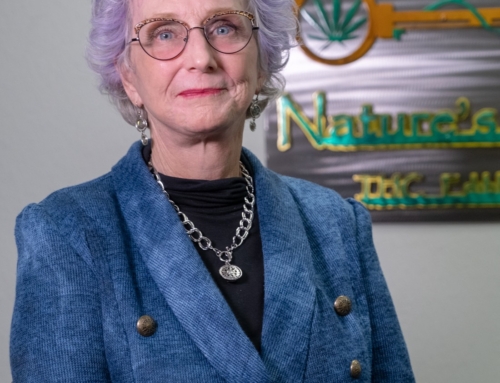
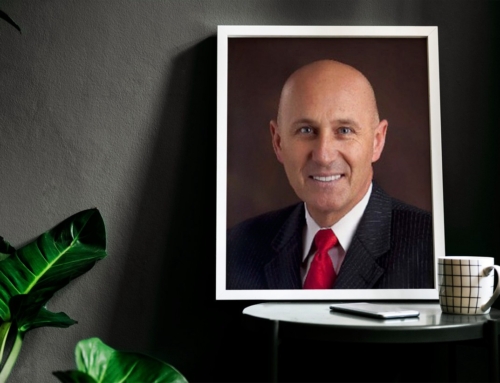
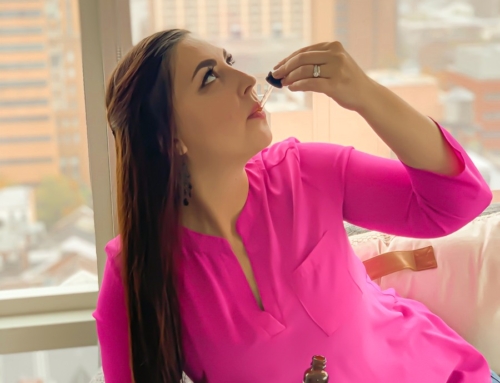

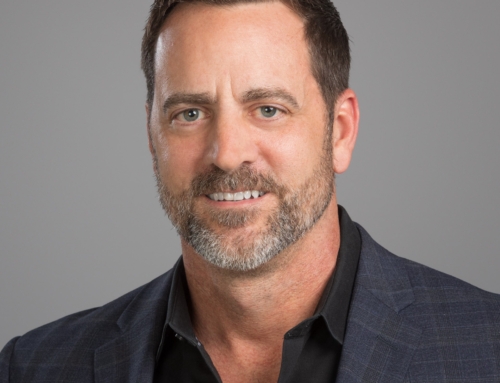
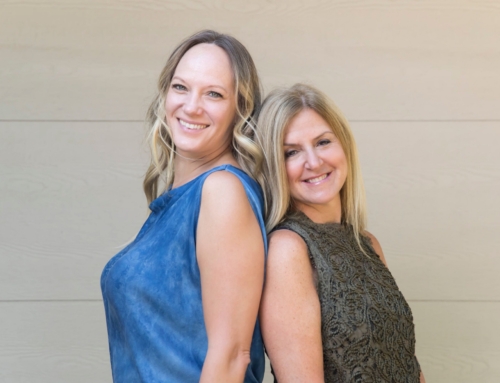
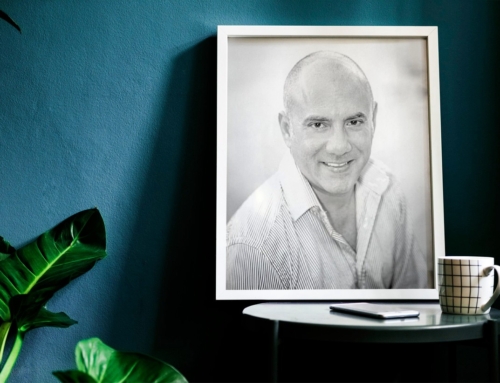
![“The potential to help people [in this industry] is enormous, but there’s still so much to learn.” – Ramon Alarcon, Witi](https://lakesideremedy.com/wp-content/uploads/2020/12/1thj5ekUyxQ69iLz1JJyODg-scaled-e1607882756286-500x383.jpeg)
